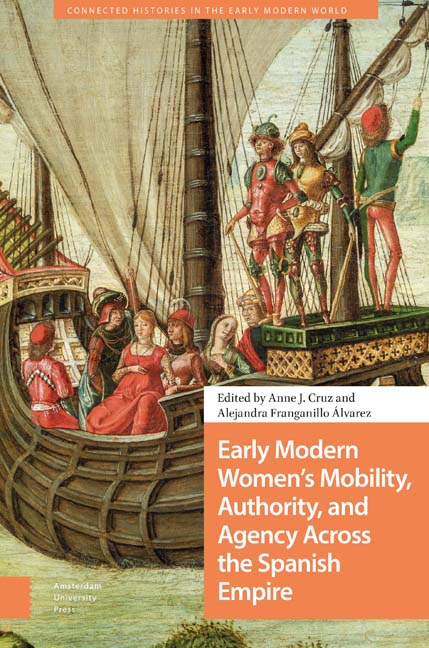1 - Inés Muñoz de Ribera : The Making of an Encomendera in Sixteenth-Century Peru
Published online by Cambridge University Press: 08 May 2024
Summary
Abstract
This chapter investigates the life of Inés Muñoz de Ribera (c. 1510–1594), one of the first Spanish women who emigrated to Peru in the sixteenth century. It covers the long journey that took her from Spain to Peru, the difficulties she faced and strategies she deployed to become one of colonial Lima's most privileged and recognized settlers. Not only was she the first married Spanish woman to arrive in Peru, but she also played an outstanding role in the social, economic, and religious sphere of the Viceroyalty. Thanks to her encomiendas (royal grants of tributes from indigenous inhabitants) she accumulated a patrimony with which she founded and endowed Lima's monastery, the Monastery of La Concepción, which still bears witness to her important legacy.
Keywords: Inés Muñoz, settler, encomiendas, colonial Peru, Francisco Pizarro, early modern women
The Andean territory of Peru, conquered and pacified by the Spanish Monarchy during the sixteenth century, constituted an open frontier that not only made possible but also encouraged colonial women's robust participation in almost exclusively male spheres of action, such as in the military and in politics, and advanced the prospect of vertiginous social ascent to even the lowest socio-economic class. Not a few Spanish women seized the opportunities afforded them in this new world by risking the perilous journey across the Atlantic Ocean to the Pacific coast. Yet these women's histories have remained little known despite their importance, and we have scant knowledge of the difficulties they had to face upon arrival, the contributions they made, or how they strategized to position themselves in the nascent colonial society.
This chapter investigates the extraordinary role played by one of the first Spanish women who emigrated to Peru in the sixteenth century, Inés Muñoz de Ribera (c. 1510–1594). Despite her lower-class origins, she became a settler and an encomendera. In 1573, she founded and endowed one of Lima's most important monasteries, the Monastery of La Concepción, where, twice widowed, she professed as a nun and became its abbess (Vargas Ugarte 1960; Cobo 1956a).
- Type
- Chapter
- Information
- Publisher: Amsterdam University PressPrint publication year: 2024



